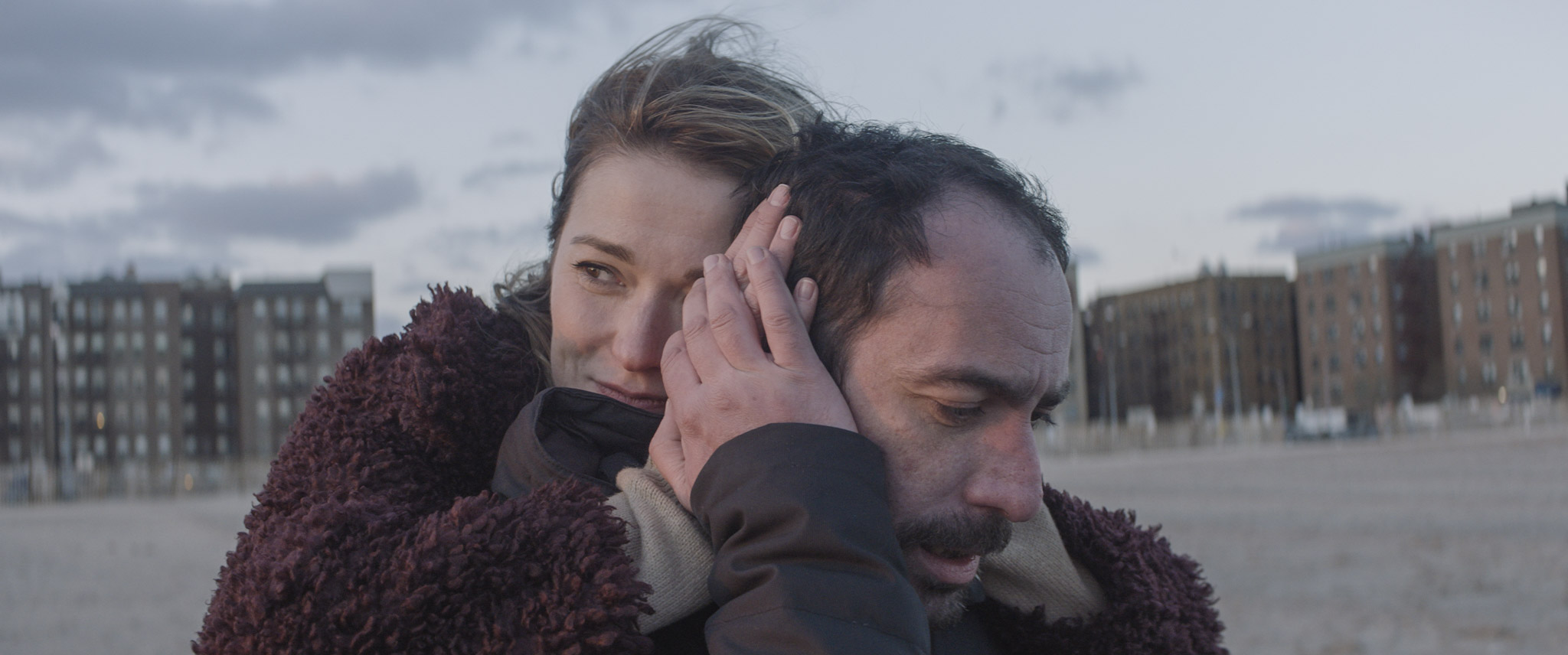In Brighton 4th, the Georgian diaspora of Brooklyn’s Brighton Beach (an area known colloquially as “Little Odessa” for its largely East European and Russian communities) provide backdrop to a touching story of father (a former champion wrestler) and son (a decent man with an indecent gambling habit). Equally warm and melancholic with a rich vein of tragicomedy, Brighton is just the second narrative from Levan Koguashvili, a Georgian filmmaker who became toast of this year’s Tribeca Film Festival when Brighton 4th took home the award for Best Film in their “International” selection, as well as Best Actor (Levan Tediashvili, an astonishing find) and Best Screenplay (Boris Frumin, a writer and associate professor at NYU.)
Brighton 4th was recently announced as Georgia’s submission to the Oscars, selected over more challenging and poetic works from Alexandre Koberidze (What Do We See When We Look at the Sky?) and Déa Kulumbegashvili (Beginning). Koguashvili’s film is clearly the easiest sell, but it is good value for those plaudits—not least in the case of Tediashvili, a real-life former Olympic wrestler who won gold in the 1972 and 1976 games while competing for the Soviet Union. In only his second screen role (the last came way back in 1987), he gives a quietly captivating turn as Kakhi, mild mannered ex-champ living a humble life with his wife in Tablisi before a distress call from his debt-ridden son draws him across the Atlantic and sets the film’s drama in motion. As we learn, the younger man, Soso (Giorgi Tabidze, convincingly hapless), moved to America to study medicine but instead discovered a taste for poker and has since fallen afoul of the neighborhood mob to the considerable tune of $14,000.
For a story of hardened men and illicit hobbies, Brighton 4th packs a strangely benevolent punch. The mob guy, Amir (Yuri Zur), holds court in a restaurant on the pier with a gang of thugs, yet the film doesn’t show an undue amount of animosity between them and Soso—if anything more a sense of pity for Soso’s father and some roughing-up here and there (business is business, after all). Moreover, Soso is involved in a relationship with a Russian woman, Lena (a formidable Nadezhda Mikhalkova), with whom he has organized a marriage of convenience in order to get a green card. The money promised for that deal, of course, is long gone, yet she sticks around, seemingly in spite of his imperfections, and Koguashvili finds warmth even in this long-suffering and perhaps transactional affair. When Kakhi eventually confronts Amir on his son’s behalf in the climatic exchange, he is treated with nothing but respect.
Koguashvili surrounds these characters with a supporting cast of charming eccentrics who dip in and out of proceedings—mostly when the booze comes out. (While most are non-professional, one older neighbor is played by the beloved Soviet actor Kakhi Kavsadze—a fine singer, given ample room to stretch the vocal chords in a film full of song.) Occasional surrealist flourishes (accordions!) add texture to the world Koguashvili has created; and the director goes one further by finding genuine emotional heft in Kakhi’s devotion to his son, not least manner in which Tediashvili carries it; worth noting that Tediashvili’s own son died in the Abkhazian war in the 1990s, a conflict in which Tediashvili also fought. Then there is the matter of the actor’s huge, battle-weary frame replete with swollen ears, and how it seems to act as a cocoon for the surprising tenderness of his voice. (If Koguashvili’s film can be taken as an examination of performative masculinity, the contrast between these two attributes suggests something of a metaphor.)
Working for the first time in North America and shooting in overcast greens and blues, Koguashvili’s crisp aesthetic is notable for its idiosyncrasies: a film of familiar locations seen through fresh, discerning eyes: the DP is the great Greek cinematographer Phedon Papamichael, a regular collaborator of Alexander Payne, with whom he found similarly novel angles on the Midwest in their monochrome Nebraska. Bittersweet to the last moments, his film ultimately carves out an unusual place in the lineage of immigrant crime stories by way of its offbeat tone: the potential for violence is always palpable, bubbling just below the surface, but is constantly undercut with surprising moments of kindness. Look to the sequence when Kakhi is hired as the live-in helper of an elderly couple, one of whom tries to seduce him (a powder-keg put out with a back massage). Or the great centerpiece, surely amongst cinema’s gentlest shake-downs, in which Kakhi is brought along to kidnap a Kazakh man who refuses to pay two women on his staff. As the grizzled athlete bearhugs his mark in the backseat of a car, his only demand comes as a whisper: “Calm down. Calm down.”
Brighton 4th screened at International Film Festival Mannheim-Heidelberg in 2021 and opens on Janury 28, 2022 at NYC’s Village East Cinema and will expand.

